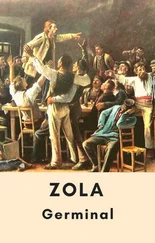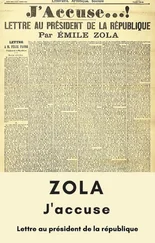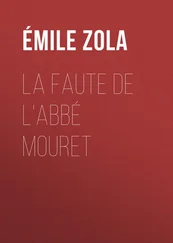Émile Zola - His Masterpiece
Здесь есть возможность читать онлайн «Émile Zola - His Masterpiece» — ознакомительный отрывок электронной книги совершенно бесплатно, а после прочтения отрывка купить полную версию. В некоторых случаях можно слушать аудио, скачать через торрент в формате fb2 и присутствует краткое содержание. Жанр: literature_19, foreign_antique, foreign_prose, на английском языке. Описание произведения, (предисловие) а так же отзывы посетителей доступны на портале библиотеки ЛибКат.
- Название:His Masterpiece
- Автор:
- Жанр:
- Год:неизвестен
- ISBN:нет данных
- Рейтинг книги:5 / 5. Голосов: 1
-
Избранное:Добавить в избранное
- Отзывы:
-
Ваша оценка:
- 100
- 1
- 2
- 3
- 4
- 5
His Masterpiece: краткое содержание, описание и аннотация
Предлагаем к чтению аннотацию, описание, краткое содержание или предисловие (зависит от того, что написал сам автор книги «His Masterpiece»). Если вы не нашли необходимую информацию о книге — напишите в комментариях, мы постараемся отыскать её.
His Masterpiece — читать онлайн ознакомительный отрывок
Ниже представлен текст книги, разбитый по страницам. Система сохранения места последней прочитанной страницы, позволяет с удобством читать онлайн бесплатно книгу «His Masterpiece», без необходимости каждый раз заново искать на чём Вы остановились. Поставьте закладку, и сможете в любой момент перейти на страницу, на которой закончили чтение.
Интервал:
Закладка:
Dubuche, out of breath with having run, bewildered at finding himself amidst such howling, thrust his fat, pallid face forward, whilst stammering explanations.
‘Really, now, I assure you it was the fault of the omnibuses. I had to wait for five of them in the Champs Elysees.’
‘No, no, he’s lying! – Let him go, he sha’n’t have any of that mutton. Turn him out, turn him out!’
All the same, he ended by coming in, and it was then noticed that he was stylishly attired, all in black, trousers and frock-coat alike, and cravated and booted in the stiff ceremonious fashion of some respectable member of the middle classes going out to dinner.
‘Hallo! he has missed his invitation,’ chaffed Fagerolles. ‘Don’t you see that his fine ladies didn’t ask him to stay to dinner, and so now he’s come to gobble up our leg of mutton, as he doesn’t know where else to go?’
At this Dubuche turned red, and stammered: ‘Oh! what an idea! How ill-natured you are! And, besides, just attend to your own business.’
Sandoz and Claude, seated next to each other, smiled, and the former, beckoning to Dubuche, said to him: ‘Lay your own place, bring a plate and a glass, and sit between us – like that, they’ll leave you alone.’
However, the chaff continued all the time that the mutton was being eaten. When the charwoman had brought Dubuche a plate of soup and a piece of skate, he himself fell in with the jokes good-naturedly. He pretended to be famished, greedily mopped out his plate, and related a story about a mother having refused him her daughter because he was an architect. The end of the dinner thus became very boisterous; they all rattled on together. The only dessert, a piece of Brie cheese, met with enormous success. Not a scrap of it was left, and the bread almost ran short. The wine did run short, so they each swallowed a clear draught of water, smacking their lips the while amidst great laughter. And, with faces beaming, and well-filled paunches, they passed into the bedroom with the supreme content of folks who have fared very sumptuously indeed.
Those were Sandoz’s jolly evenings. Even at the times when he was hard up he had always had some boiled beef and broth to share with his comrades. He felt delighted at having a number of them around him, all friends, inspired by the same ideas. Though he was of their own age, he beamed with fatherly feelings and satisfied good-nature when he saw them in his rooms, around him, hand in hand, and intoxicated with hope. As he had but two rooms, the bedroom did duty as a drawing-room, and became as much theirs as his. For lack of sufficient chairs, two or three had to seat themselves on the bed. And on those warm summer evenings the window remained wide open to let in the air. From it two black silhouettes were to be seen rising above the houses, against the clear sky – the tower of St. Jacques du Haut-Pas and the tree of the Deaf and Dumb Asylum. When money was plentiful there was beer. Every one brought his own tobacco, the room soon became full of smoke, and without seeing each other they ended by conversing far into the night, amidst the deep mournful silence of that deserted district.
On that particular evening, at about nine o’clock, the charwoman came in.
‘Monsieur, I have done. Can I go?’
‘Yes, go to bed. You have left the kettle on the fire, haven’t you? I’ll make the tea myself.’
Sandoz had risen. He went off at the heels of the charwoman, and only returned a quarter of an hour afterwards. He had no doubt been to kiss his mother, whom he tucked up every night before she dozed off.
Meanwhile the voices had risen to a high pitch again. Fagerolles was telling a story.
‘Yes, old fellow; at the School they even correct Nature herself. The other day Mazel comes up to me and says: “Those two arms don’t correspond”; whereupon I reply: “Look for yourself, monsieur – the model’s are like that.” It was little Flore Beauchamp, you know. “Well,” Mazel furiously replies, “if she has them like that, it’s very wrong of her.”’
They almost all shrieked, especially Claude, to whom Fagerolles told the story by way of paying court. For some time previously the younger artist had yielded to the elder’s influence; and although he continued to paint with purely tricky skill, he no longer talked of anything but substantial, thickly-painted work, of bits of nature thrown on to canvas, palpitating with life, such as they really were. This did not prevent him, though, from elsewhere chaffing the adepts of the open-air school, whom he accused of impasting with a kitchen ladle.
Dubuche, who had not laughed, his sense of rectitude being offended, made so bold as to reply:
‘Why do you stop at the School if you think you are being brutified there? It’s simple enough, one goes away – Oh, I know you are all against me, because I defend the School. But, you see, my idea is that, when a fellow wants to carry on a trade, it is not a bad thing for him to begin by learning it.’
Ferocious shouts arose at this, and Claude had need of all his authority to secure a hearing.
‘He is right. One must learn one’s trade. But it won’t do to learn it under the ferule of professors who want to cram their own views forcibly into your nut. That Mazel is a perfect idiot!’
He flung himself backward on the bed, on which he had been sitting, and with his eyes raised to the ceiling, he went on, in an excited tone:
‘Ah! life! life! to feel it and portray it in its reality, to love it for itself, to behold in it the only real, lasting, and changing beauty, without any idiotic idea of ennobling it by mutilation. To understand that all so-called ugliness is nothing but the mark of individual character, to create real men and endow them with life – yes, that’s the only way to become a god!’
His faith was coming back to him, the march across Paris had spurred him on once more; he was again seized by his passion for living flesh. They listened to him in silence. He made a wild gesture, then calmed down.
‘No doubt every one has his own ideas; but the annoyance is that at the Institute they are even more intolerant than we are. The hanging committee of the Salon is in their hands. I am sure that that idiot Mazel will refuse my picture.’
Thereupon they all broke out into imprecations, for this question of the hanging committee was the everlasting subject of their wrath. They demanded reforms; every one had a solution of the problem ready – from universal suffrage, applied to the election of a hanging committee, liberal in the widest sense of the word, down to unrestricted liberty, a Salon open to all exhibitors. 8 8 The reader will bear in mind that all these complaints made by Claude and his friends apply to the old Salons, as organized under Government control, at the time of the Second Empire. – ED.
While the others went on discussing the subject, Gagniere drew Mahoudeau to the open window, where, in a low voice, his eyes the while staring into space, he murmured:
‘Oh, it’s nothing at all, only four bars; a simple impression jotted down there and then. But what a deal there is in it! To me it’s first of all a landscape, dwindling away in the distance; a bit of melancholy road, with the shadow of a tree that one cannot see; and then a woman passes along, scarcely a silhouette; on she goes and you never meet her again, no, never more again.’
Just at that moment, however, Fagerolles exclaimed, ‘I say, Gagniere, what are you going to send to the Salon this year?’
Gagniere did not hear, but continued talking, enraptured, as it were.
‘In Schumann one finds everything – the infinite. And Wagner, too, whom they hissed again last Sunday!’
But a fresh call from Fagerolles made him start.
Читать дальшеИнтервал:
Закладка:
Похожие книги на «His Masterpiece»
Представляем Вашему вниманию похожие книги на «His Masterpiece» списком для выбора. Мы отобрали схожую по названию и смыслу литературу в надежде предоставить читателям больше вариантов отыскать новые, интересные, ещё непрочитанные произведения.
Обсуждение, отзывы о книге «His Masterpiece» и просто собственные мнения читателей. Оставьте ваши комментарии, напишите, что Вы думаете о произведении, его смысле или главных героях. Укажите что конкретно понравилось, а что нет, и почему Вы так считаете.












